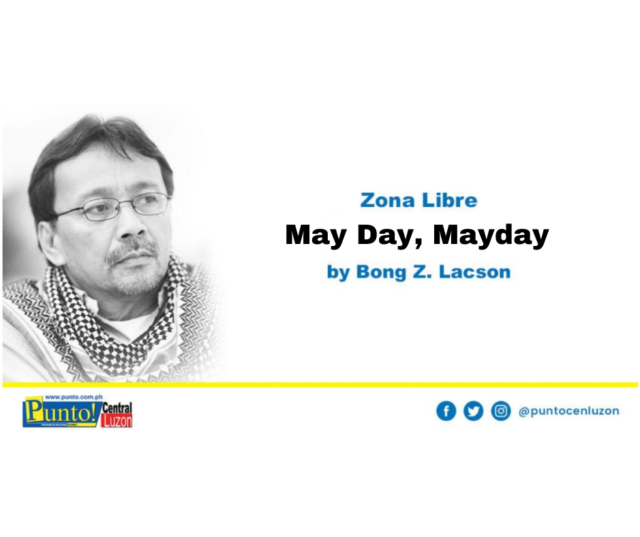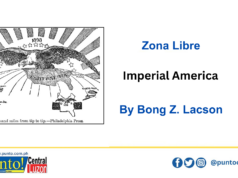DAS KAPITAL rings as true today – the death of communism be damned – as it did in 1867: “Capital is dead labor, that, vampire-like, only lives by sucking blood from living labor.”
Closer to the Filipino proletariat’s heart is the poignancy of the lines of poet-patriot Ka Amado Hernandez in his Bayang Malaya:
“Bisig na nagsaka’y siyang walang palay;
Nagtayo ng templo’y siyang walang bahay;
Dumungkal ng mina ng bakal at ginto ay baon sa utang;
Lingkod sa pabrika ng damit ay hubad ang mahal sa buhay.”
(The arm that farmed is one without the crops;
The temple builder, without a house;
The one who mined for iron and gold, deep in debt;
The sewer, whose loved ones are naked.)
The plebeian’s nothingness of being finds similar manifestation in another poet of another time and clime, closer to the very spring of its origin – the Industrial Revolution. Thus, Percy Bysshe
Shelley’s Song to the Men of England:
“Men of England, wherefore plough
For the lords who lay ye low?
Wherefore weave with toil and care
The rich robes your tyrants wear?
The seed ye sow, another reaps;
The wealth ye find, another keeps;
The robes ye weave, another wears;
The arms ye forge, another bears.
Sow seed – but let no tyrant reap;
Find wealth – let no impostor heap;
Weave robes – let not the idle wear;
Forge guns – in your defense to bear;
Further back into history, St. Ambrose, the fourth century bishop of Milan, took the Parable of the Dives with this censorious swing at the rich: “The earth was established to be in common for all, rich and poor; why do ye rich alone arrogate it to yourselves as your rightful property?
“You crave possession not so much for their utility to yourself, as because you want to exclude others from them. You are more concerned with despoiling the poor than with your own advantage. You think yourself injured if a poor man possesses anything which you consider a suitable belonging for a rich man; wherever belongs to others you look upon something of which you are deprived.”
Deprivation is the eternal state of the worker. That is fated in capitalist societies, engrossed as they are in “…production not merely the production of commodities … (but) essentially the production of surplus value.”
Marx furthered: “All surplus value, whatever particular (profits, interests, rent) it may crystallize into, is in substance the materialization of unpaid labor.”
Today, May 1, the cry for economic emancipation will ring anew. All media shall be filled with paeans to the workingman from just about every political lip freed for this day, and only this day, from the lock of the capitalist kiss.
Tomorrow, May 2, it’s back to the salt mines for labor again. Until the next May Day.
Sometime, the vicious cycle had to be broken. Then it is the tale of the askal (mongrel) retold:
“Sa bawat latay, kahit aso’y nag-iiba.
Sa una, siya’y magtataka.
Sa ikalawa, siya’y magtatanda.
Sa ikatlo, siya’y mag-iisip.
Sa ika-apat, humanda ka!
(For every lash, even the dog will change.
At the first, it would wonder.
At the second, it would remember.
At the third, it would think.
At the fourth, prepare yourself.)
Then, as now, the cry reverberates: The proletarians have nothing to lose but their chains. They have a world to win.
Workingmen of all countries, unite!
Mabuhay ang uring anak-pawis!
(First published in Punto May 2-3, 2014)





